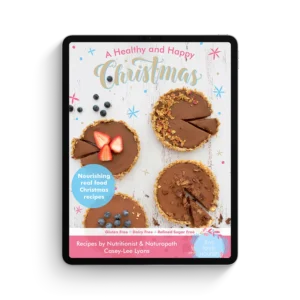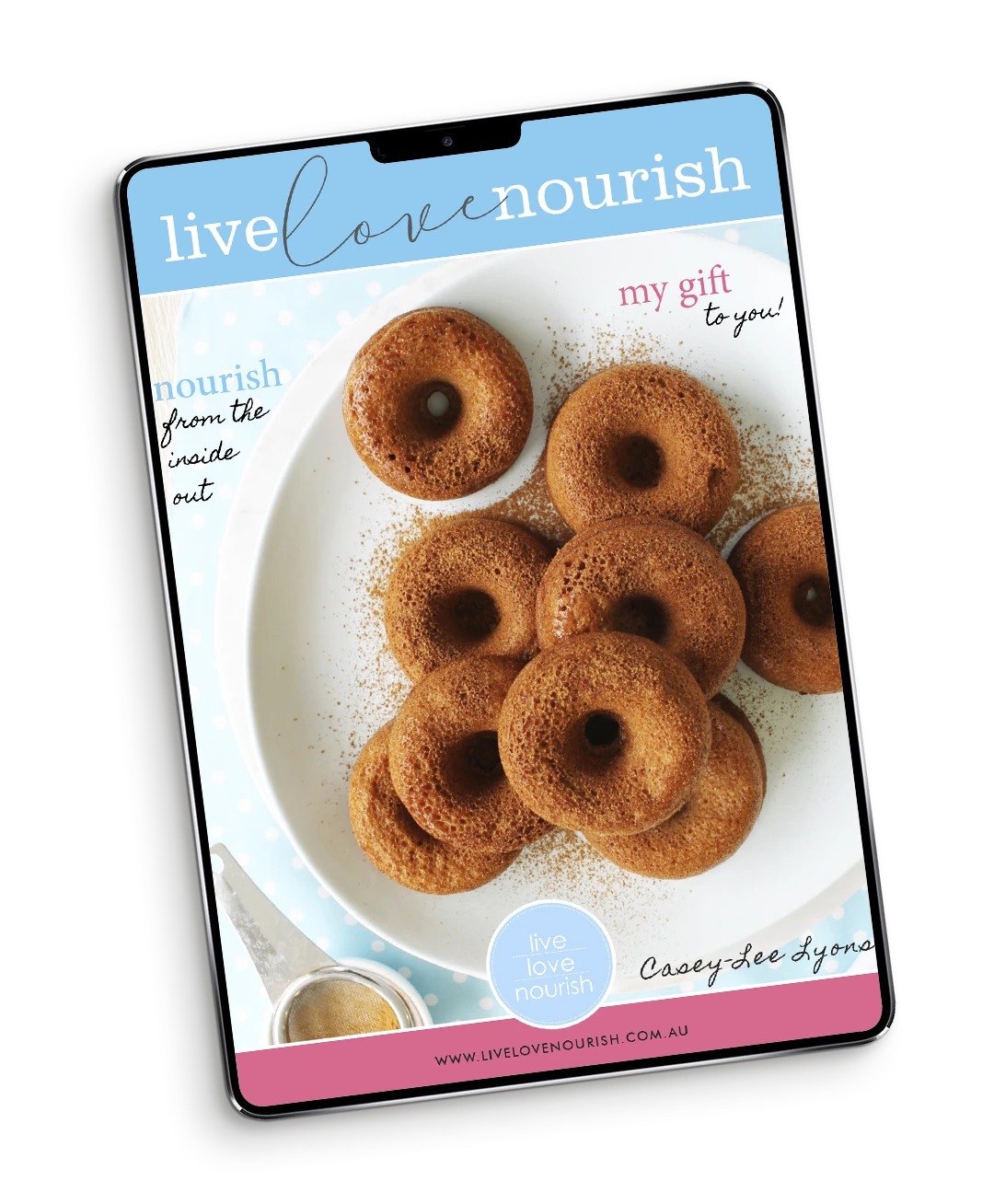Is Filtered Water Better For You?
Before spending money on superfood powders we need to get the basics right. There are some very simple and key things we can do for ourselves that will enhance our health. In this blog post I am going to cover the importance of healthy hydration and share with you some food for thought when it comes to the quality of water you drink. We will answer some important questions including, are you drinking enough water and is filtered water better for you?
As simple as they may be they are very influential on how you feel. Some of these healthy habits that I go through in my Online Nutrition Program, Nourish From The Inside Out, are eating healthily, getting enough good quality sleep, reducing and managing stress levels, drinking enough water and moving your body in ways you enjoy. These are basic tools, yet are foundational and necessary aspects for your wellbeing.
Why Do We Need To Drink Enough Water?
Adequate hydration is a must for a healthy and nourished body. For energy and vitality you need to make sure you are drinking enough water.
Water is essential for feeling energised, to rehydrate your body and to support your body’s many processes. It is an essential nutrient required for biochemical reactions to occur as well as for proper digestion, nutrient absorption, transportation, thermoregulation, waste elimination and more. It will keep you feeling vital, alert, energised and glowing.
More often than not most people drink inadequate amounts of water leading to dehydration.
So let’s dive in to answering some important questions, are you drinking enough water? And is filtered water better for you?
What Are The Signs Of Not Drinking Enough Water
As a nutritionist I see dehydration a lot in patients which can present with many signs. Look out for these signs that you are dehydrated and not getting enough water:
- You feel tired or fatigued.
- You find it hard to concentrate and focus.
- You are thirsty all of the time.
- Your urine is dark in colour.
- Your skin and lips are dry.
- You experience dry mouth and difficulty producing saliva. You find it difficult to think clearly and make decisions.
- You experience mild headaches.
- You experience muscle cramps.
- You experience constipation
How Much Water Do I Need To Drink?
Your needs for water will vary depending on:
- Age
- Gender
- Weight
- Health status
- Level of physical activity
As a general suggestion, 1.5 – 2 litres of fresh, filtered water per day is a good place to start.
Listen to your body and look out for the signs that your body needs rehydrating. Thirst is the easiest indicator. Try to make sure you drink enough water to before getting excessively thirsty.
Our Local Tap Water
Firstly I think its important to express gratitude to live in a country that has access to safe and disease free water.
Our government has guidelines and regulations for ensuring they provide safe water for our communities and thankfully the risk of bacteria and infections from tap water is quite low.
Before treatment, water may contain pathogens (i.e. microorganisms capable of causing sickness or disease). Drinking water is treated and disinfected with chemicals to remove these.
Still, the chemicals that sanitise our tap water still raises potential concern. Unfortunately there are quite a few chemicals found in our everyday tap water from the treatment process. Contaminants that you might find in our tap water include chlorine, fluoride, bacteria and even heavy metals.
Our local safe drinking water requires additives and chemicals you can often smell or taste, such as chlorine (used as a disinfectant widely used by Australian water suppliers). Chlorine in drinking water may be detectable. It is added to most drinking water in Queensland to kill harmful germs that may be present in the environment. A small residual amount of chlorine remains in the water to maintain quality as it travels through the pipes.
Other additives include fluoride which are added to your water in the treatment plant. There are ongoing discussions over potential health impacts as a result of this.
Filtering tap water is one way of removing these additives and chemicals include chlorine, fluoride, bacteria and heavy metals,
Is Filtered Water Better For You?
Is filtered water better for you and your health? I believe so. Whilst these chemicals are used to ensure our water is free from disease causing pathogens for example, they may not be the ideal thing to be drinking consistently, considering how much we use and rely on water, from drinking, cooking, bathing etc, we are constantly exposed to these chemicals. There is also a lot of debate around the topic of fluoride and its potential impact on your health.
Although said to be in small amounts and regulated they are still present. I am grateful for the access to clean water we have and further grateful to have the opportunity to further improve the quality of water we drink through processes such as filtration to remove these chemicals and contaminants from our water.
My personal experience with filtered water
Years ago I decided to invest in my health with getting a water filter for our home and I am so glad I did. I personally found my water tasted better and I surprisingly noticed that I was absorbing water much better than before. I also love that my family and I are reducing the chemicals in our home (to the best of our ability – I am far from perfect) including in our water. Five years later I am still using the same brand in water filters (I use a Water’s Co Filter System) and am still very happy with my filter system.
I love the feeling of knowing the water my family and I drink and cook with is free from chemicals and something we feel great about.
Why does the quality of water we drink matter?
I like to think of our body as a car. If you want your body to run optimally like you would a car, would you choose to run it on poor quality ‘fuel’ or good quality fuel for optimised function.
Water is also one of the most undervalued aspects of good health. Adequate hydration and clean potable water is essential for optimal health. Whilst poor quality water may impact on your body, particularly over time, we are lucky enough to live in an area of the world where we have choice as to the quality of water we drink.
I am personally grateful for the opportunity we have to support our health and wellbeing through hydrating with good quality water, free from chemicals and contaminants.
When it comes to filtered water we are left with two options; either bottled water or filtered tap water.
Given the incredible negative impact single use plastic bottles has had and continues to have on our environment my personal choice is one that supports the environment through a water filter system over bottled water. Filtered water is a much more eco friendly alternative to bottled water.
Micro-plastics is another topic you want to consider. Micro plastics are present in tap water and high levels found in most bottled water. Bottled water is far outdated when it comes to being a healthier option, irregardless of the environmental impact also associated with it.
Long term storage of bottled water in plastic, often sitting in the heat for long periods of time has its issues too as to what may leach in to the water itself from the plastic.
Filtering your own water is actually quite easy, good for the environment and good for your wallet. Through filtered water we can reduce contaminates, impurities and chemicals from our water.
If you are like me, I can pick up on the taste of tap water and smell the chlorine which is another reason I prefer filtered water. To reduce order and improve taste.
In the long run, having water filter system will save money much more than bottled water and be much more environmentally friendly.
What is actually hiding in our water and why we should filter it?
Tap water is truely one of the great unknowns. Aside from what gets put into the water when its treated to ensure it’s biologically safe to drink (killing bacteria, cysts, viruses etc), it can vary in quality day to day and even house to house depending on what the water has come in contact with on its way to your tap. Some of the common contaminants include heavy metals including lead, copper, aluminium, mercury and others, chemicals including chlorine or similar used in sterilisation of the water, pesticides, fluoride, hormones, pharmaceutical residues, micro-plastics, bacteria and more. Although easier to ignore especially as we can’t see them, their presence in our drinking water is a concern. These are not something I personally want to have in my family’s regular drinking water.
The Australian Drinking Water Guidelines provides an extensive report on our water quality, what is present and in which amounts are safe and potential health associations with chemicals.
Your water utility can also provide water testing results.
What are the benefits of drinking filtered water over tap water?
Our water sources are under unparalleled stress from pollution coming from industry, plastics, added contaminants in processing plants and infrastructure before it gets to your tap.
The water you use in your home coming from your tap, whilst deemed ‘safe’ to drink (in the sense free from bacteria, disease) the issue of the presence of chemicals raises conversations with concern.
What I love about filtered water is not only peace of mind, knowing what you and your family are drink but hydrating your body with superior quality water free from additives such as chlorine, flouride and heavy metals.
The less chemical-load on your body the better really.
What are the types of water filter systems?
There are several methods of water filtration including ceramic, reverse osmosis, distillation, activated alumina, activated carbon, UV Ultra Violet and Ioniser. You can read more on each of these here.
What are the key features to look for in a filter?
Ideally it will remove all contaminants including odour, taste, sediment, heavy metals, biological hazards including bacteria, chemicals, chlorine, hormones, micro-plastics and hormone disruptors. This is a good place to start and should be a key requisite when researching a filter system.
The removal of contaminants is only just the beginning of what a good filter can do. A good water filter should leave in or better yet add essential trace minerals back in that are actually beneficial for your body.
You also want to check that the material your filter is made from is BPA and BPS free.
What is The Best Water Filter System
Personally, after researching and researching (I’m a nerd at heart) I decided to go with Waters Co. Their is 40 years of scientific research beyond their filter system and I trust in their knowledge, passion and integrity behind their product. I truly feel really confident about their system and its ability to remove 99% of contaminants including fluoride, heavy metals and chemicals.
They have a few different products in their depending on your water use, including an everyday bottle with filter, jug and bench top filters.
The Water’s Co filters both remove contaminant/ chemicals AND add back in minerals to your water. The materials they are made from are BPA and BPS free and without aluminium.
I personally noticed a huge difference in the taste of the filtered water and to put it to the test I got others in my family to try too. Without knowing which was which, I offered them a glass of tap water and a glass of filtered water and asked for the opinion and noticed on the difference. Every single one noticed a huge difference.
At home I started with the bench top filter which I have been using for over 5 years and now also have the jug and water man (portable on-the-go water filter).
A Community Discount For Our Members
As a genuine user and lover of my Waters Co Filter System, after 7 years, I reached out to the company and am grateful to be able to share a discount code for our Live Love Nourish Community.
Use the following code for discount on the Water’s Co website off their products, including bench top filters, jugs and portable water filters.
Discount code: LIVELOVENOURISH7 for 7% off.
Here are some of your great questions answered from social media:
How often do you replace the filters?
How often you replace the filters depends on which model you have. All filters from the AceBio+ up have multi stage filtration & include spare components that last up to 5 years.
The filter life is subject to volume filtered and water quality before filtration. We have a filter reminder service, which customers that order direct are automatically registered for. The filter reminder service will email at set times to advise recommendations of any maintenance required.
Does the Waters Co Filter take out fluoride, chlorine as well as aluminium?
Yes. Their current line of filter systems are offering up to 99.9% fluoride removal, chlorine, chemicals/pesticides and heavy metals such as aluminium, lead, copper, mercury etc.
How does it compare to reverse osmosis?
It is a common misconception that R/O is the only effective way of removing high levels of contaminants especially Fluoride. In fact this is not the case. The effectiveness of reverse osmosis can vary based on flow rate, thereby giving inconsistent or undesirable results. One of the biggest factors against reverse osmosis that might influence your decision is its sustainability/waste factor. R/O systems can waste up to to 7 litres of water for every 1 litre purified.
The Waters Co filters not only remove a consistently high level of pollutants such as Fluoride (100% in lab testing) they add back in bio available essential minerals and structure the water so that it can provide a higher level of cellular hydration too.
Is it really that bad to have tap water?
My intention for this blog post is to inform the reader and empower you with choice. We are lucky enough to live in Australia and have access to clean and disease free water but I too feel we are lucky enough to have the opportunity to consider how we can further improve our quality of water and consider the potential implications constant exposure to chemicals in our water may have.
For health reasons it is a good idea to reduce the chemical load on our body where we can, for health and for the enviroment. From the positive health benefits of removing chemicals such as chlorine to hydrating with mineralised water that the body loves, choosing filtered water over tap water is one way we can have a positive influence on your health, easily so.
When making the choice to switch to filtered water, and I am so glad I did, I think its important to make a choice that aligns well to our philosophy and beliefs on what feel is healthiest and best for you.
What are the best jugs to get?
I love the Waters Co AceBio+ jug. It has a 10 stage filtration system and is also BPA free. Their filters last for 2 years and can be replaced (much longer than other brands I have seen which need to be replaced after just a few months).
What is the ongoing cost?
The filter systems from Waters Co come complete with all the options and replacement parts you need to keep you going for years to come, so there’s nothing more for you to buy or spend on to upgrade. Most other systems that appear to be cheaper to buy will actually cost more than double than the investment made in a Waters Co system in ongoing maintenance.
The Bio 1000 comes complete with a filter kit & replacement components to last up to 15,000 litres*. Based on 8 litres per day that works out to around 5 years. It works out to $90 per annum or around 3 cents per litre (based on 5 year filter kit included)
Similar brands are up to $250 per annum or around 6 cents per litre (Only include filters for 6-12 months when new)
Best prices to purchase in Australia?
We are proud to partner with Waters Co to offer our community a discount! Visit their website for all product pricing.
Use the following discount code for discount on the Water’s Co website off their products, including bench top filters, jugs and portable water filters.
Use code LIVELOVENOURISH7 for 7% off Waters Co range of products.
Is there a chill button to keep cold?
The bench top filters don’t come with a chill button however I personally have a jug in my fridge I keep topped up with our filtered water as well as the AceBio+ Water Jug that is a slim 1L design that fits in our fridge well.
I’m concerned about the the filter refills going into landfill? Does the company recycle them?
Such a great question! The Waters Co filter parts can be taken apart once used.
The carbon media etc can go in green bins or on garden beds etc and the casings can then go into recycle bin.
If you have any more questions about the Waters Co Water Filter, about water or tips for drinking enough for your health, please leave your questions below or get in touch via Instagram or Facebook. You can also head to the Waters Co website for further information on filtered water options and their range.





